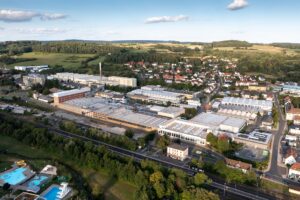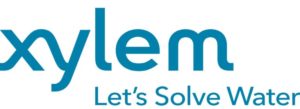Dover Reports Fourth Quarter and Full Year 2002 Results
The industrial pump companies of Dover Resources (Wilden and Blackmer) had improved earnings with a slight improvement in sales. Cost reduction initiatives, favorable product mix and innovative new products drove this positive operating leverage.
Dover Corporation (NYSE: DOV) had net earnings from continuing operations for the full year 2002 of $211.1 million or $1.04 diluted earnings per share (DEPS) compared to $181.8 million or $.89 DEPS from continuing operations last year. The year's earnings from continuing operations (net of tax) included inventory, restructuring and other charges of $25.3 million or $.12 DEPS in 2002 and $52.6 million or $.26 DEPS in 2001. For the full year of 2002, net earnings before changes in accounting principles were $171.8 million or $.84 DEPS, including $39.4 million or $.20 DEPS in losses from discontinued operations, compared to $248.5 million or $1.22 DEPS in 2001 which included $66.7 million or $.33 DEPS in earnings from discontinued operations which was primarily the result of the gains from the sale of the AC Compressor and DovaTech businesses. Sales for 2002 were $4,183.7 million compared to $4,368.4 million in 2001, a decrease of 4%. For 2002, free cash flow was $268.9 million or 6.4% of sales compared to $332.8 million or 7.6% of sales in 2001.
Dover Resources' full year 2002 earnings increased 1% or $0.9 million, to $115.1 million. Sales for the year decreased 7%, or $60.0 million to $837.4 million. Full year results for 2001 included $7.1 million of inventory, restructuring and other charges. No comparable charges were recorded in 2002. The impact of goodwill amortization on earnings for the full year in 2001 was $10.3 million. Bookings for the year decreased 6% to $830.3 million with a book-to-bill ratio of .99. Cash transfers were $149.0 million for the year or 130% of earnings.
Fourth quarter earnings increased $1.1 million or 4% to $26.7 million on a sales decrease of 3% or $7.1 million to $212.5 million as compared to the same period of the prior year. The fourth quarter of 2001 included $1.8 million of inventory, restructuring and other charges. The impact of goodwill amortization on earnings in the fourth quarter of 2001 was $2.6 million. Bookings in the quarter of $202.5 million were down 1% from the prior year and the book-to-bill ratio for the quarter was .95. Ending backlog was $67.4 million, a 5% decrease from the beginning of the year. However, Resources determined during the quarter that three businesses had limited opportunity for continued growth under their ownership. Accordingly, two entities are currently for sale, one was sold in the fourth quarter and all have been reported as discontinued operations.
Dover Resources' results for the quarter and the full year continue to show the impact of the recession in the various energy, fluid transfer, and engineered industrial products markets served. In response, company presidents focused on internal improvement initiatives to properly size their businesses, reduce costs, and maintain product development efforts to drive future growth. Quarterly performance showed improved earnings on a slight sales decline with more companies down than up compared to last year. This was the weakest quarter of the year due to a slow December in most markets. Operational improvements being implemented in Europe and South America and expansion into China will support future growth. For the full year, six companies showed improved earnings but only two had increased sales. Overall, Resources' companies were successful in maintaining and, in some cases, increasing market share during the year.
For the full year, the oil and gas production equipment companies (Petroleum Equipment Group, C. Lee Cook and Quartzdyne) accounted for most of Resources' 2002 declines in both sales and earnings as oilfield activity actually declined in spite of high commodity prices that traditionally are a barometer of growth. This market will likely remain unsettled until the threat of a war in the Middle East and tensions in Venezuela are resolved. Escalating depletion rates and lower drilling activity in the past year offer optimism for this market in the long term.
The balance of Resources' companies had mixed results. The industrial pump companies (Wilden and Blackmer) had improved earnings with a slight improvement in sales. Cost reduction initiatives, favorable product mix and innovative new products drove this positive operating leverage. Hydro Systems had record earnings for the year as Nova Controls and European operations improved their results. The automotive and industrial markets served by De-Sta-Co Industries and De-Sta-Co Manufacturing both showed positive leverage on decreased sales during the year. De-Sta-Co Industries had sales gains each quarter after a slow start. New automotive platforms and the need for enhanced productivity solutions will continue to drive growth for these companies. The OPW Fueling Components and Fluid Transfer Groups experienced a down market as service station construction declined, bulk fluid tanker production slowed and chemical companies continued to curtail spending. Vapor recovery products and specialty railroad tanker valves were bright spots. Building on this year's increased business in Asia and Latin America and entering into China will help to drive future growth. The Tulsa Winch Group experienced a slow fourth quarter as customers realigned their inventory requirements. RPA Process Technologies had a strong fourth quarter fueled by several large project shipments at its Group Aoustin operation in France.
Source: Dover Corporation





